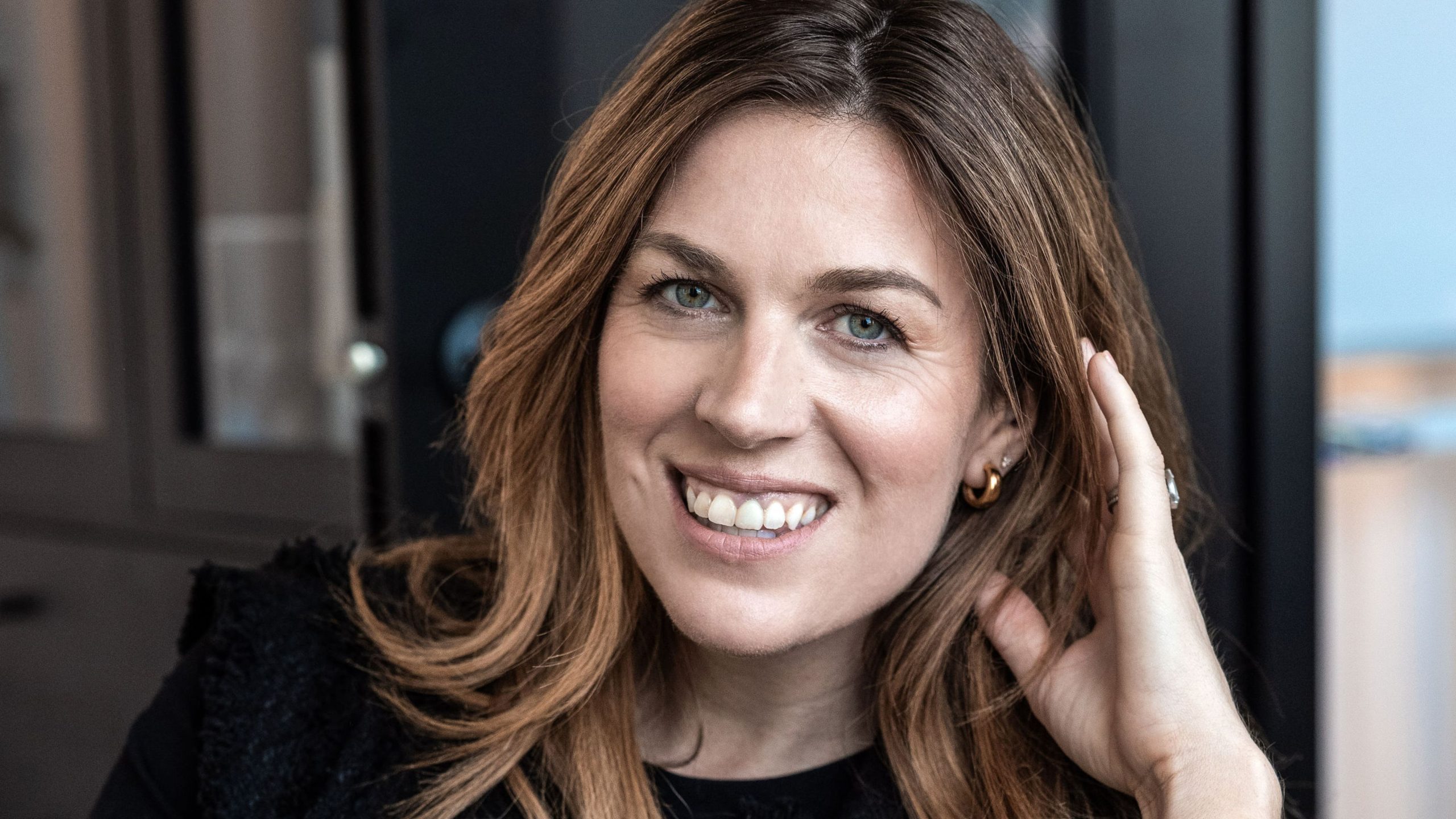It goes without saying that when it comes to running a business or simply work culture in general, women face an uphill battle of unique challenges that their male counterparts do not have to experience. Since the start of the pandemic, these issues have only been exasperated as childcare and household responsibilities have reached a boiling point and largely been placed on the shoulders of women who are juggling both work and family duties.
According to a 2021 international barometer on women’s entrepreneurship conducted by Veuve Clicquot, 62 percent of women polled believed that it is much more difficult for a woman to balance work and family life as an entrepreneur than a man. McKinsey’s Women in the Workplace 2021 report echoes similar findings, reporting that mothers are more than three times as likely as fathers to be responsible for most of the housework and caregiving during the pandemic—so much so that women who are employed full-time are often said to be working a “double shift.”
The pandemic has certainly taught us many lessons on what the future of work should look like but if we want to emerge stronger, it’s clear that women need to be at the center of Canada’s recovery efforts—and much of that focus must be on mothers.
From tech startups to lifestyle brands, we asked six founders about their experience building or leading their companies as mothers and their thoughts on how to continue moving the dial of progress.
Dolor sit amet
3/4


Jen Rubio (CEO, Away)
1/4


What is the most surprising thing about motherhood that you didn’t expect going into it?
On a daily basis, I'm surprised either by how much easier something is than I thought it would be or how much harder it was. Basically, everything I expected is not what it is. Sometimes I'm positively surprised and sometimes I'm a lot more challenged, but I think that's part of it. In a way I'm enjoying it because very similar to my startup experience, this is my first child. I did not read any books about how to be a mother, I didn't really take advice, even though it gets offered to you in spades. I'm just going with it.
I have an incredible partner and our mothers have flown in to help at different times so there's a lot of support. I think part of the excitement of the journey is, like a startup, you can't plan for what your baby's going to be like or what he's going to do every day. I think that's actually mentally prepared me a lot for how I'm going to raise him.
How has motherhood changed the way you think about running a business?
There were two life-changing things that happened before I stepped into [my role as CEO]: having a baby and the pandemic. I think even just one of those things would radically change how a leader thinks about leading a company. I do think there is this myth, especially in the startup world, that to be successful, the only thing you can think about is your business and you're not allowed to be passionate or spend time on other things or be deeply involved or vocal about anything else. Admittedly, that is how I operated for at least the first few years of building Away. Would it have turned out differently if I wasn't like that? Would it have grown maybe not so quickly? I don't know.
I think it was important for me when I took on the [CEO] role to not just say yes to being the one to run the business but to really think about what that means, what do I want that role to look like? What kind of leader do I want to be now? I always thought that I led with empathy and understanding but now I place more of an emphasis on the work that people are doing and the results that they're driving versus how and when they're doing it. I think more than ever, I see that success and results, it really doesn't matter if somebody has to take a couple of hours off in the middle of the day to pick up their kids or if someone likes to work really late at night or really early in the morning. I think before there was such an emphasis on the one right way to work. I'm really happy to be moving away from that.
What is missing when we have these conversations around supporting moms in the workplace? Where do you think progress needs to be made? How do you think workplaces can better support moms in general?
I think the first and most important thing is just taking a look at your policies and how flexible they are. Away has a very generous and flexible paid parental leave for all new parents. So not just moms but also dads and adoptive parents, too. I think it's really important if you're in a position where you can impact these things, that you do. In the US, only 20 percent or so of workers have access to paid family leave. This is one of the wealthiest countries in the world and we don't have any federally mandated paid family leave, even though in half of two-parent families, both parents work. What this does, in the long run, is it deeply impacts how women grow in their careers, the choices that they have to make that are placed sometimes on them, but not on the father. People making these policies in workplaces have a real responsibility because we don't have that federal mandate to create those policies themselves.
I also think leaders should really lead by example. Take your leave, be visible about it, and let your team know how you're balancing the needs of your personal life with that of the business. I think that goes back to managers letting results speak for themselves and being more results-oriented versus trying to dictate the way that people do work. In the long term, what's important for long-lasting change is increased visibility of women in positions of leadership. The more of that there is, the more it starts to become normalized and not such a crazy thing.
I told an acquaintance I was taking on the CEO role and the first thing he said back to me was, "but you're about to have a baby?" And this is someone who's known me or been in my circle for a long time. We still have to reframe that thinking. There are definitely implications towards motherhood and life changes that we need to evolve in order to improve things for everyone.
What are some misconceptions about motherhood and entrepreneurship that you think need to be dismantled based on your experience so far?
When people talk about doing both (motherhood and entrepreneurship) it's great. They talk about compartmentalizing everything very neatly. So, you have your work time, you have your mom time. Maybe you go back to work time when the babies sleep. I think it fed into this idea that I had for myself that I would be able to plan my days, and within those certain times, I would be able to only think about the thing I was supposed to be thinking about. Honestly, it was very, very hard for me in the beginning because my son, being premature, spent a lot of the time in the NICU, which by the way is one of the hardest places to be ever. It was one of the hardest things I've ever gone through, but a lot of the time, you're just sitting in the room and your newborn is sleeping, and there are just machines beeping and nothing to do. You're just sad and kind of sitting there. I would find myself checking into work because that's something that makes me happy and gives me energy. I want to know what was going on there. But as I was doing it, I felt a sense of guilt—is it terrible that I'm checking my work email when I'm in the NICU? No one's making me do it, I'm doing it on my own choice.
We had a big meeting the other day. I was hearing noises upstairs so I kept checking the baby monitor on my phone. I thought to myself, am I a bad CEO that I'm not 100 percent here and present because I really want to see what's going on on the baby monitor? And I feel like women are so hard on themselves about that. Obviously, you should try to be present and focused, but it doesn't make you a bad person if there are other things in your life pulling you in a different direction. So I guess to answer your question, the big misconception is that you can do both [at the same time.] There are only a certain number of minutes in a day, and in a single minute you could be thinking about multiple things.
A lot of times, the conversation around motherhood and working moms has placed the responsibility or burden of moving the conversation forward on women. How do you think men can do a better job of supporting working moms?
My husband and I are in a very unique position where we're both CEOs of very valuable companies. We both took parental leave a few months into my leave. I was in a very different mental state than I was right after we had the baby. I said to him that I really miss work. This is a really pivotal time for the company and I had planned to take a bit of a longer leave but there are some things that I want to jump back into and get involved in. We had a talk about me going back from my leave early and him extending his leave. I just think that's just such a powerful example of finding that balance at home and in the workplace and the responsibility. We had the conversation and decided that he would extend his leave. That, to me, was just such an incredible example of how parental leave policies need to be equal, and partners also need to be afforded the same policies and allowances that mothers have because we need that support.
Essentially, this is a conversation that comes back to misogyny. If paternal leave isn’t granted to new dads, then the burden often falls on women and prevents them from advancing in their careers. What can employers do to support new dads as well as moms?
Visibility is important. I think it was very important for my husband as CEO of Slack to take his leave, to tell people to be vocal about it so that others in more junior roles within his organization know that, not only is it okay, but it's encouraged and you should take it and take on the responsibilities at home. Also, something that has been really alarming is the number of women who have had to leave their jobs due to the pandemic because children were at home and weren't going to school. There were childcare issues and the default answer was for women to pause what they were doing and handle that. I think it's very deeply ingrained in our society and our culture. The more examples of successful people doing it, the better.
How would you like to redefine motherhood or add to how we understand and define it today, if at all?
This is less about motherhood and more about women understanding what their choices are between their bodies and their careers. I'm really excited to see numerous new companies pop up that are about women's health, fertility, and getting a better sense of what that looks like for each person. Talking about freezing your eggs or waiting to get pregnant was so taboo for so long and now we're coming out of that. There are so many more resources out there to help women. We're so lucky to have all of this now. As a woman, if you work for a company that supports you in this, you can be a mother and take leave and not have it affect your career. But also, if you want to delay it a lot, there are a lot of workplaces now that support fertility decisions. All of that is very exciting to me.
Tempor incididunt
2/4
Phasellus viverra nulla ut metus varius laoreet. Sed consequat, leo eget bibendum sodales, augue velit cursus nunc, quis gravida magna mi a libero. Donec posuere vulputate arcu. Pellentesque dapibus hendrerit tortor.

Dolor sit amet
3/4


Jen Rubio (CEO, Away)
1/4


What is the most surprising thing about motherhood that you didn’t expect going into it?
On a daily basis, I'm surprised either by how much easier something is than I thought it would be or how much harder it was. Basically, everything I expected is not what it is. Sometimes I'm positively surprised and sometimes I'm a lot more challenged, but I think that's part of it. In a way I'm enjoying it because very similar to my startup experience, this is my first child. I did not read any books about how to be a mother, I didn't really take advice, even though it gets offered to you in spades. I'm just going with it.
I have an incredible partner and our mothers have flown in to help at different times so there's a lot of support. I think part of the excitement of the journey is, like a startup, you can't plan for what your baby's going to be like or what he's going to do every day. I think that's actually mentally prepared me a lot for how I'm going to raise him.
How has motherhood changed the way you think about running a business?
There were two life-changing things that happened before I stepped into [my role as CEO]: having a baby and the pandemic. I think even just one of those things would radically change how a leader thinks about leading a company. I do think there is this myth, especially in the startup world, that to be successful, the only thing you can think about is your business and you're not allowed to be passionate or spend time on other things or be deeply involved or vocal about anything else. Admittedly, that is how I operated for at least the first few years of building Away. Would it have turned out differently if I wasn't like that? Would it have grown maybe not so quickly? I don't know.
I think it was important for me when I took on the [CEO] role to not just say yes to being the one to run the business but to really think about what that means, what do I want that role to look like? What kind of leader do I want to be now? I always thought that I led with empathy and understanding but now I place more of an emphasis on the work that people are doing and the results that they're driving versus how and when they're doing it. I think more than ever, I see that success and results, it really doesn't matter if somebody has to take a couple of hours off in the middle of the day to pick up their kids or if someone likes to work really late at night or really early in the morning. I think before there was such an emphasis on the one right way to work. I'm really happy to be moving away from that.
What is missing when we have these conversations around supporting moms in the workplace? Where do you think progress needs to be made? How do you think workplaces can better support moms in general?
I think the first and most important thing is just taking a look at your policies and how flexible they are. Away has a very generous and flexible paid parental leave for all new parents. So not just moms but also dads and adoptive parents, too. I think it's really important if you're in a position where you can impact these things, that you do. In the US, only 20 percent or so of workers have access to paid family leave. This is one of the wealthiest countries in the world and we don't have any federally mandated paid family leave, even though in half of two-parent families, both parents work. What this does, in the long run, is it deeply impacts how women grow in their careers, the choices that they have to make that are placed sometimes on them, but not on the father. People making these policies in workplaces have a real responsibility because we don't have that federal mandate to create those policies themselves.
I also think leaders should really lead by example. Take your leave, be visible about it, and let your team know how you're balancing the needs of your personal life with that of the business. I think that goes back to managers letting results speak for themselves and being more results-oriented versus trying to dictate the way that people do work. In the long term, what's important for long-lasting change is increased visibility of women in positions of leadership. The more of that there is, the more it starts to become normalized and not such a crazy thing.
I told an acquaintance I was taking on the CEO role and the first thing he said back to me was, "but you're about to have a baby?" And this is someone who's known me or been in my circle for a long time. We still have to reframe that thinking. There are definitely implications towards motherhood and life changes that we need to evolve in order to improve things for everyone.
What are some misconceptions about motherhood and entrepreneurship that you think need to be dismantled based on your experience so far?
When people talk about doing both (motherhood and entrepreneurship) it's great. They talk about compartmentalizing everything very neatly. So, you have your work time, you have your mom time. Maybe you go back to work time when the babies sleep. I think it fed into this idea that I had for myself that I would be able to plan my days, and within those certain times, I would be able to only think about the thing I was supposed to be thinking about. Honestly, it was very, very hard for me in the beginning because my son, being premature, spent a lot of the time in the NICU, which by the way is one of the hardest places to be ever. It was one of the hardest things I've ever gone through, but a lot of the time, you're just sitting in the room and your newborn is sleeping, and there are just machines beeping and nothing to do. You're just sad and kind of sitting there. I would find myself checking into work because that's something that makes me happy and gives me energy. I want to know what was going on there. But as I was doing it, I felt a sense of guilt—is it terrible that I'm checking my work email when I'm in the NICU? No one's making me do it, I'm doing it on my own choice.
We had a big meeting the other day. I was hearing noises upstairs so I kept checking the baby monitor on my phone. I thought to myself, am I a bad CEO that I'm not 100 percent here and present because I really want to see what's going on on the baby monitor? And I feel like women are so hard on themselves about that. Obviously, you should try to be present and focused, but it doesn't make you a bad person if there are other things in your life pulling you in a different direction. So I guess to answer your question, the big misconception is that you can do both [at the same time.] There are only a certain number of minutes in a day, and in a single minute you could be thinking about multiple things.
A lot of times, the conversation around motherhood and working moms has placed the responsibility or burden of moving the conversation forward on women. How do you think men can do a better job of supporting working moms?
My husband and I are in a very unique position where we're both CEOs of very valuable companies. We both took parental leave a few months into my leave. I was in a very different mental state than I was right after we had the baby. I said to him that I really miss work. This is a really pivotal time for the company and I had planned to take a bit of a longer leave but there are some things that I want to jump back into and get involved in. We had a talk about me going back from my leave early and him extending his leave. I just think that's just such a powerful example of finding that balance at home and in the workplace and the responsibility. We had the conversation and decided that he would extend his leave. That, to me, was just such an incredible example of how parental leave policies need to be equal, and partners also need to be afforded the same policies and allowances that mothers have because we need that support.
Essentially, this is a conversation that comes back to misogyny. If paternal leave isn’t granted to new dads, then the burden often falls on women and prevents them from advancing in their careers. What can employers do to support new dads as well as moms?
Visibility is important. I think it was very important for my husband as CEO of Slack to take his leave, to tell people to be vocal about it so that others in more junior roles within his organization know that, not only is it okay, but it's encouraged and you should take it and take on the responsibilities at home. Also, something that has been really alarming is the number of women who have had to leave their jobs due to the pandemic because children were at home and weren't going to school. There were childcare issues and the default answer was for women to pause what they were doing and handle that. I think it's very deeply ingrained in our society and our culture. The more examples of successful people doing it, the better.
How would you like to redefine motherhood or add to how we understand and define it today, if at all?
This is less about motherhood and more about women understanding what their choices are between their bodies and their careers. I'm really excited to see numerous new companies pop up that are about women's health, fertility, and getting a better sense of what that looks like for each person. Talking about freezing your eggs or waiting to get pregnant was so taboo for so long and now we're coming out of that. There are so many more resources out there to help women. We're so lucky to have all of this now. As a woman, if you work for a company that supports you in this, you can be a mother and take leave and not have it affect your career. But also, if you want to delay it a lot, there are a lot of workplaces now that support fertility decisions. All of that is very exciting to me.
Tempor incididunt
2/4
Phasellus viverra nulla ut metus varius laoreet. Sed consequat, leo eget bibendum sodales, augue velit cursus nunc, quis gravida magna mi a libero. Donec posuere vulputate arcu. Pellentesque dapibus hendrerit tortor.














